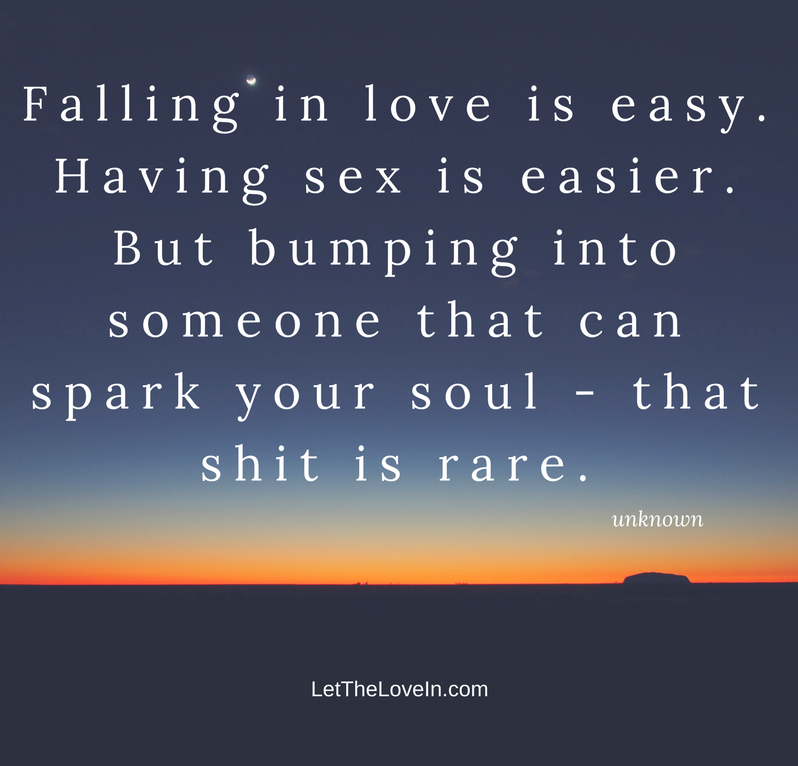If love and relationships are a “collaborative work of art”, some of us need a partner to create with.
With the acceptance of online dating and the rapid rise of apps, we have more choice than ever. And with that choice comes indecision, disatisfaction and for some of us, overwhelm.
Between the advice to ‘settle’ and “marry him already” and the endless advice on how to “find your soulmate”, how do you choose who to spend your time with?
Psychology Today’s Finding Love blogger and author of Deeper Dating, Ken Page, gives three powerful steps to finding love; go where you’re likely to find generous, giving people; lead with your truest self; and become fiercely discriminating about the things that matter most.
Look around you
You’re less likely to find a fellow dance lover at a thrash metal concert than you are at Sadler’s Wells. So why not increase your odds of finding someone open to a relationship and socialise with people who share your values – values which are naturally inclined towards kindness, generosity, acceptance and love? As Erika Napoletano puts it in one of her most hilarious and expletive-filled blog posts,
“.. why do I keep hearing people of both sexes say — still — that they can’t seem to find a good guy or girl in a world with a population of roughly 7 billion people?
Maybe it’s time to shift the way you go about searching and start looking for what you really want .. [so] if you keep finding duds, stop shopping in the dud store.
If you truly want to start having a different quality of relationship, you can’t keep shopping in the same store. You wouldn’t go back to the same restaurant time and time again if you got food poisoning every time, would you? (Seriously — would you?)”
Seriously though – would you?
Be yourself
This is the advice that everyone gives, that everyone hears, and that everyone learns to hate.
We’re all multi-faceted and complex creatures, composed of history, heartache, triumph and insecurity. Who ARE we, moment to moment, anyway?
What I’ve learned, in large part to my illness, is this: my relationship with my ‘flaws’ influences the relationship others have with me and my ‘flaws’, too.
For example; if I’m insecure about asking for help when I lose the ability to stand or walk, my anxiety becomes contagious. If I treat it as a bit of a laugh and no big deal, others relax and follow my lead.
It’s not easy, especially when I’m so physically faced with aspects of myself I’d really rather not have. But oddly, those moments of vulnerability become gateways to a deeper connection. As Ken Page puts it,
“As long as we lead with an airbrushed version of self we will feel inadequate and insecure. Why? Because our false self is inadequate. It has no link to our personal power.
It’s like climbing a wobbly ladder. There will be a constant feeling of uncertainty and that’s not what we want when we’re dating.
When we hide our true self, we find ways to sabotage real intimacy because we’re scared of being “found out.” “
Being your true self isn’t a carte blanche to be your worst self, or to overwhelm someone with all of your neuroses and pet hates (colour-coded, catalogued, complete with fully-interactive flip-chart).
That’s what vulnerability researcher and writer Brene Brown describes as floodlighting – using vulnerability to manipulate. As she writes in Daring Greatly,
“Using vulnerability is not the same as being vulnerable; it’s the opposite – it’s armour.”
When we’re craving connection, we feel even more sensitive to the pain of rejection. But when we don’t accept our true selves – including what we’re really looking for – we end up rejecting ourselves first. Anyone else’s actions simply become a mirror for our own inner rejection.
And think about it; do you want someone who only wants you if you’re not actually being you?
Choose wisely
Not everyone deserves to see our vulnerable sides, unfortunately. If you’re a highly sensitive person or empathic, it’s especially important to to be discriminating about who you choose to spend your time with. Again, Brene Brown highlights six kinds of people who don’t deserve to hear our story. But as a general rule, Ken Page’s advice is hard to beat;
“Is the person you’re dating kind? Is he or she emotionally generous (even if quietly so)? Are you inspired by the way this person lives his or her life, and by the kindness and acceptance he or she shows you?
If so, you’ve found what I call an attraction of inspiration. Celebrate what you’ve found, and do your best to nourish it. It’s a rare and precious thing.
Or instead, do you find that your partner continues to be almost available? Almost accepting? Almost within reach? Almost integrity-based?
If so, trust your gut. Talk to your partner about your feelings, and if things don’t change, it’s probably time to move on.
These “attractions of deprivation” are tricky and confusing [but] if you really want love that can last, it’s doubtful that you’ll find it here. You have the right, and even the obligation to yourself to move on until you find the real thing.”
It can be tempting to hold on, hoping things will change. To hope that people are kinder or more committed than they’ve already shown themselves to be. To fear no-one will love the ‘real’ you. To look for love in the wrong places and yet still be surprised about coming up empty. If this sounds familiar don’t worry, you’re not alone; we’ve all made these mistakes, myself included.
Just remember Maya Angelou’s advice;
“When someone shows you who they are believe them the first time.”
Because if love is a “collaborative work of art”, remember; you deserve the right person to share your canvas.
